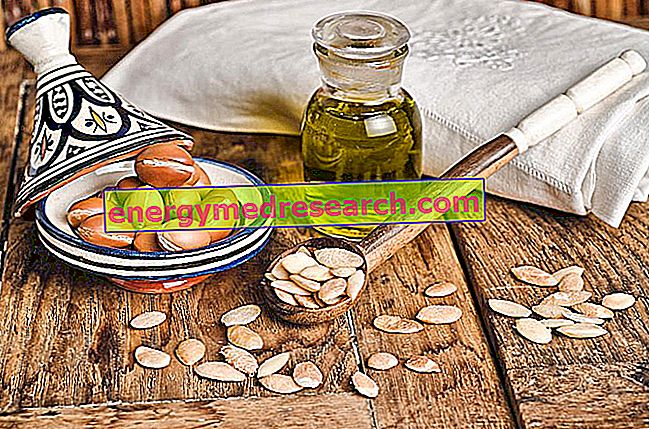
Argan oil is considered a phytotherapeutic food.
For over eight centuries, the people of Morocco and the explorers who have been able to see them, compare argan oil to a real "universal drug"; nevertheless, the product in question was not worthy of great consideration by the world scientific community.
Traditionally, argan oil is well known for its cardioprotective properties and is also used in the treatment of skin infections.
It is mainly composed of triglycerides, in turn containing monounsaturated fatty acids (up to 80%) and saturated (up to 20%).
As quantitatively secondary elements (but of great nutritional relevance), we observe: polyphenols, tocopherols, sterols, squalene and triterpene alcohols.
Together with monounsaturated fatty acids, it is hypothesized that the latter may be responsible for the many beneficial effects of argan oil.
A 2010 review entitled " Therapeutic potential of argan oil: a review " offers an overview of the "relatively well-known" pharmacological characteristics of argan oil. However, the conclusions are rather disappointing. In summary:
"It is assumed that argan oil has the following potential: antiproliferative (it hinders the multiplication of cancer cells), antidiabetic and protects against cardiovascular events.
These characteristics have been evaluated over the course of 5 years, with the aim of carrying out phytochemical studies that have isolated the pharmacologically active compounds.
The outcome showed that the lack of clinical data constitutes a serious gap in the knowledge of argan oil and its potential. It is therefore difficult to correlate the aforementioned pharmacological activities with any potential clinical relevance.



